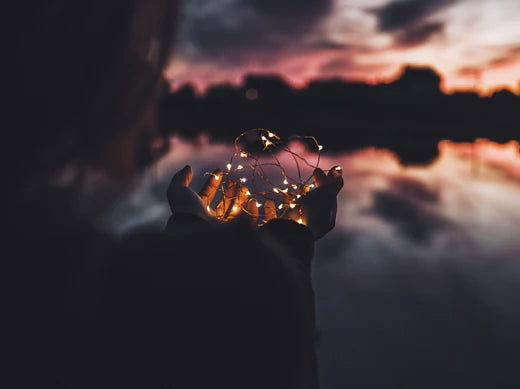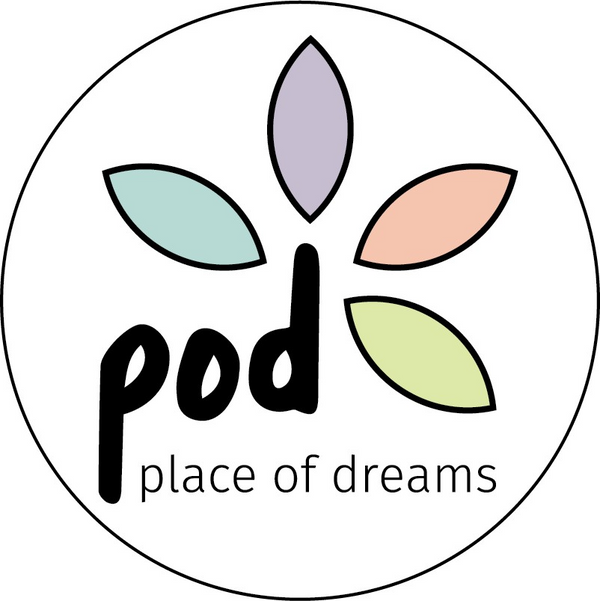
Your Sleep Enlightened
Share

For anyone who has ever woken as the light begins to stream through the window, or suffered the unending fatigue that comes from living through a northern hemisphere winter with its MONTHS of darkness - it should come as no surprise to you that for humans, just like plants, light plays an important role in health.
You’ve probably heard the term circadian rhythm. It’s not some kind of magic ritual, but simply the body’s internal clock that tells us when to be at rest and when to be alert. In order for our ‘clocks’ (CR) to be synchronised with our environment (or our required patterns, i.e shift workers), light is the conductor to make sure your body is doing what it needs to be doing, and when.
(Bear with me while I get my nerd on. Feel free to skip to here if you aren’t interested in why, and you just want some tips. We won’t judge you 😊)
Your Circadian Rhythm is a 24(ish) hour internal clock that directs a number of processes and systems in your body. Sleep is the obvious one, but many of our systems rely on the CR for their schedule. Your CR is controlled by a tiny part of the brain called the circadian pacemaker that is heavily influenced by light. When light enters the eye, your brain receives information about what time of day it is and passes that info on to the rest of your body, so your systems know what they should be doing at that time of day.
Conversely, the lack of light also sends an important message: it tells the body to rest. But this isn’t as easy as flicking off a switch. As the amount of light the eye receives decreases, the body starts to produce the ‘sleep hormone’ called Melatonin. Melatonin sends signals throughout the body that it is time to prep for sleep - things like dropping your body temp, relaxing your muscles, starting to feel drowsy, etc. Melatonin levels continue to climb from early evening and into the night to help you stay asleep, and will start to wane in early morning. The levels stay low throughout the day to help you stay alert. When light (in particular the blue wave-length of light) is introduced during this process, it interrupts the melatonin cycle and can disrupt sleep and impair your CR.
Thank you for indulging me - now to the point…
Why should we care?
Not enough light during the day, too much light in the evening, and a lack of darkness at night throws your CR out-of-whack. This can reduce the quality and quantity of your sleep, making you tired throughout the day. Studies have shown that this can also cause impaired moods, weight gain, cardiovascular problems, poor metabolism, and even an increased risk of certain types of cancer.
So, what do we do?
“Sun/light during the day keeps tiredness away. Darkness in bed helps you sleep like the dead” 😊
I love a good rule-of-thumb rhyme J It might not qualify as great poetry, but as long as you remember it - my job is done!
I won’t bore you with an analysis of lux and lumen but below are some easy tips to help in working light into your day and out of your night to optimize both your alertness and your sleep.
Prepping for Bed: As I said above, preparing for sleep isn’t as easy as flicking the switch, so about an hour before bed hit the dimmer switch and drop the brightness of your lights down. If you don’t have access to a dimmer switch then switch to a sweet dreams bulb that reduces brightness and eliminates the blue light found in normal household LEDs. This transition to darkness can help to encourage relaxation as well as helping your body to start prepping for sleep.
The other important part in your prepping is to avoid screen time during this period: turn off the TV, and put your phone, tablet and computer away for the night. In addition to stimulating your mind, all of these devices are known for emitting disruptive blue light. If you find that you can’t tear yourself away from that last episode of the Crown (*same), pop on some blue light blocking glasses so at least your body can start to relax while your mind reels!
Your Sleep Sanctuary: Darkness is a key part of your sleep sanctuary. Make sure your window coverings are heavy enough to fully block outside light - including the slivers of early morning sunlight that try to creep in. If you can’t control your window coverings (in hotels or onsite) add an eye mask to protect against disruptive light. Masks can take a bit of getting used to, so set yourself up for success by selecting one that is soft, comfy, flexible and doesn’t allow light to creep in at the top or the bottom. My current fav is from Best in Rest that has cooling gel packs to go over your eyes- bliss!
Need a night light? No shame… there are all kinds of reasons you might need a night light from checking on the kiddos, to not wanting to flood the house with light if you need to go to the loo. Just like when you were prepping for bed, you just need to avoid the brightness and the blue light so swap your normal nightlight with a red bulb. Red is a long wavelength light that has been shown less disruptive to sleep. Put the nightlight in a hallway or another room, where possible to avoid illuminating your sleeping space.
During the day: I have laboured the point about avoiding light during the night, but good news - during the day, hit it hard! If you are waking up lethargic or struggling throughout the day, remember that light is the thing that suppressed your sleep hormone - so walk outside and dose up on some Aussie sunshine. If you don’t have time or access to sit in the sunshine when you wake up, popping on some blue light producing glasses can help suppress your melatonin release and get your body back in rhythm.
If your light exposure is perfect to nurture your circadian rhythm but sleep still evades you, check out these tips on nailing your routine for better sleep or book a consult with a sleep coach.
Shine on you good thing!
